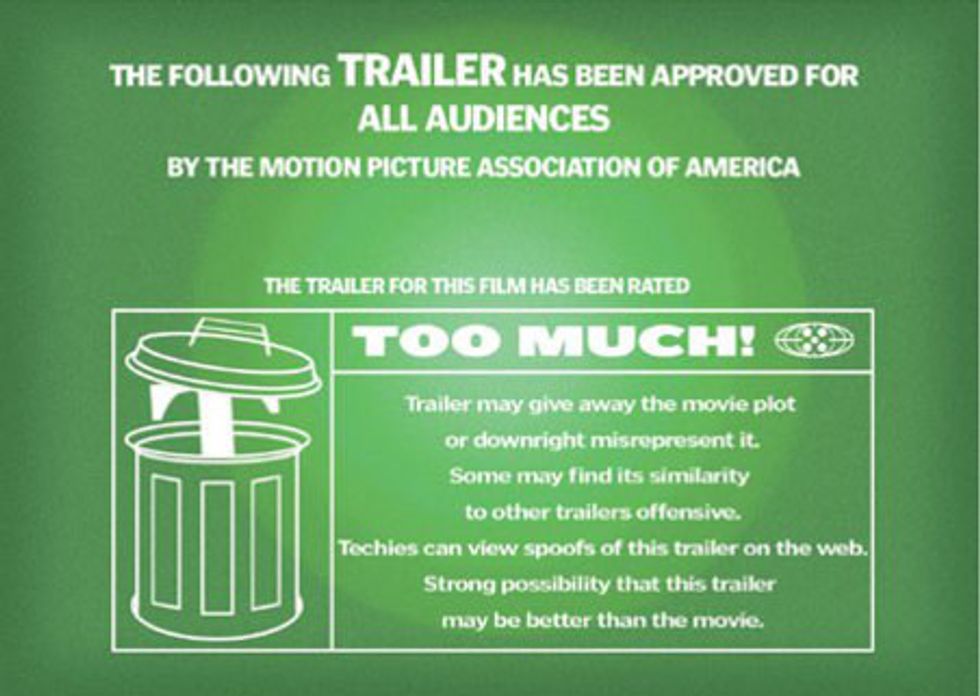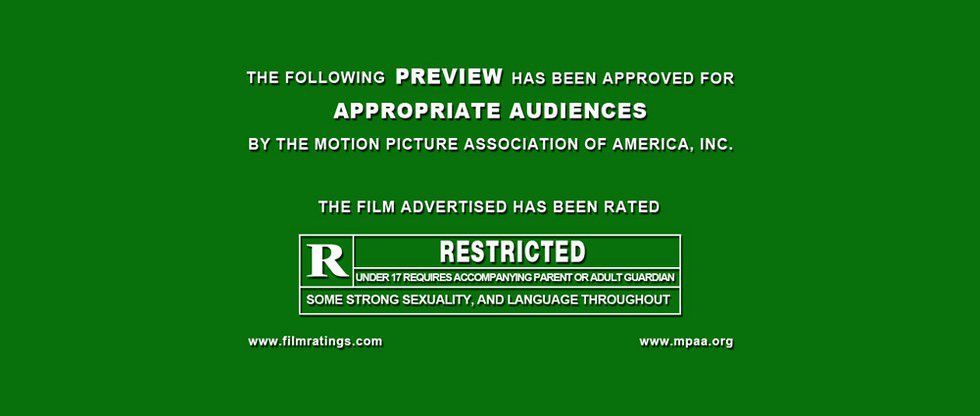Movie trailers have become an important part of film marketing. It’s all tethered in with the cinematic experience. What makes movie trailers so valuable is building up the anticipation and excitement with a targeted audience, which, hopefully, translates into a successful opening weekend. The first movie trailer premiered in 1913 for the film The Pleasure Seeker. The trailer comes in at a whopping 15 seconds, which isn't long enough to find out anything about a movie. But I am sure the trailer sparked some curiosity with film audiences. Fast-forward to 2017, and the length of an average movie trailer is too long, and it's ruining the movie-going experience. At least there are solutions to the problem, or audiences would be stuck with super long trailers that are annoying and give away too much information.
How much is too much.
Film trailers hit a peak in between 1980-1995 when the film industry saw a surge of action movies. Back then, the standard length of a trailer maxed out at two minutes. Studios knew how to utilize just enough content and time to garner audience interest in the hopes they buy movie tickets on the film's release date. However, over the past 20 years, it seems movie trailers have become longer, thus giving way more information than it should to the audience. Currently, the standard movie trailer is three minutes long, with red band trailers (which tend to feature graphic violence, harsh language, drug use, and nudity) reaching up to five minutes.
How can anyone savor the impact of a plot climax if you’ve already seen the most important elements in a trailer? For a first time viewing, the less you know, the better. Discovering the story, characters, and plot twist add to the movie-going experience. Or you get the opposite situation – you view a full three-minute trailer and still have no idea what you just watched!
Longer trailers are taking over
Take the red band trailer for Edge of Seventeen as an example.
From watching the almost five-minute red band trailer, here’s what you’ll gather: Nadine (Hailee Steinfield) is 17 years old and has hit rock bottom. She’s doing poorly in school, has a crappy relationship with her family, and is virtually ignored by her high-school crush. She’s a foul-mouthed, neurotic teenager on the edge of adulthood.
The trailer divulges everything you can expect to see in the movie. I know because I've seen Edge of Seventeen in its entirety. I could predict everything that was going to happen, thanks to that extra long trailer. In the end, organizing a trip to the theaters for Edge of Seventeen, felt like a waste of time.
Another example is the trailer for 2016s The Huntsman: Winters War, a prequel to the 2012 film, Snow White and The Huntsman.
After watching the movie, and then, doubling back to look at the trailer – not only is the trailer too long (at 2:40), it's deceptive. Specific parts of the trailer that I was excited to see in the film weren’t included.Then there is the movie tagline, “Relive the story before Snow White.” This is the story the trailer promotes, but once you see the film, it goes in an entirely different direction which is unfair to the anticipating audience.
So, what’s the solution?
The solutions are simple. For starters, do away with red band trailers. If studios want their targeted audience to know about explicit scenes or explicit language, encourage them to research MPAA ratings. Every film has a rating, and the wording present inside the rating box provides relevant information about the movies you choose to watch.
Next, shorten these trailers to 2:30 seconds or less. Short trailers will hopefully encourage studios to get more creative with the marketing and how to be resourceful with the footage they choose to use.
Movie trailers should be enticing, timely, and the reason audiences' flock to the movies. All the unnecessary additions to new trailers are a real buzzkill on the whole movie-going experience. It's time for studios to give movie fans more credit instead of assuming people are too stupid to decipher what they are watching. The less the audience knows, the better.
So my message for Hollywood is: don’t ruin it by overdoing it.
The trailer for the 2017 science-fiction film Life is a good example of a trailer that uses footage, time, and content just right. Take a look:






















